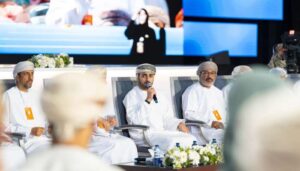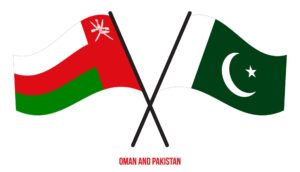UNESCO Welcomes Three Omani Cities into the Global Network of Learning Cities

Muscat, The Gulf Observer: In a significant stride towards fostering global recognition and promoting lifelong learning, the United Nations Educational, Scientific and Cultural Organization (UNESCO) proudly announces the inclusion of three Omani cities into the UNESCO Global Network of Learning Cities. The newly listed cities are the Wilayat of Muscat, the Wilayat of Nizwa, and the Wilayat of Sur.
This momentous decision aligns with the visionary efforts of the Ministry of Education, as represented by the Oman National Commission for Education, Culture and Science, in collaboration with the Ministry of Interior. The initiative aims to showcase Omani cities on the international stage, emphasizing their tourism and cultural potential while advocating for education for sustainable development within the local community. Additionally, the goal is to elevate the Sultanate of Oman’s standing in international indicators, including the pursuit of Sustainable Development Goals.
The official announcement occurred during a virtual ceremony organized by the UNESCO Institute for Lifelong Learning on Wednesday evening. Representatives from the newly listed cities, alongside delegates from various countries worldwide, participated in the event. Inclusion in the UNESCO Global Network of Learning Cities signifies global acknowledgment of the strides taken by these cities in realizing the principle of lifelong learning in practical terms.
Established by the UNESCO Institute for Lifelong Learning in 2012, the UNESCO Global Network of Learning Cities strives to enhance and support lifelong learning practices in cities globally. This is achieved through fostering dialogue on education policies, establishing crucial links between city administrators and educational institutions, and cultivating partnerships among global cities.
A Learning City, as defined by UNESCO, mobilizes resources across all sectors to promote comprehensive learning for all, spanning from basic to higher education. Such cities stimulate learning within families and local communities, facilitate learning for work, and embrace modern educational tools to instill a culture of lifelong learning. This comprehensive approach aims to enhance individual capabilities, strengthen social cohesion, and contribute to the economic and cultural growth of societies, aligning with the pursuit of sustainable development goals.
The inclusion of the Wilayat of Muscat, the Wilayat of Nizwa, and the Wilayat of Sur into the UNESCO Global Network of Learning Cities reflects Oman’s commitment to advancing education and contributing to global efforts in sustainable development.


